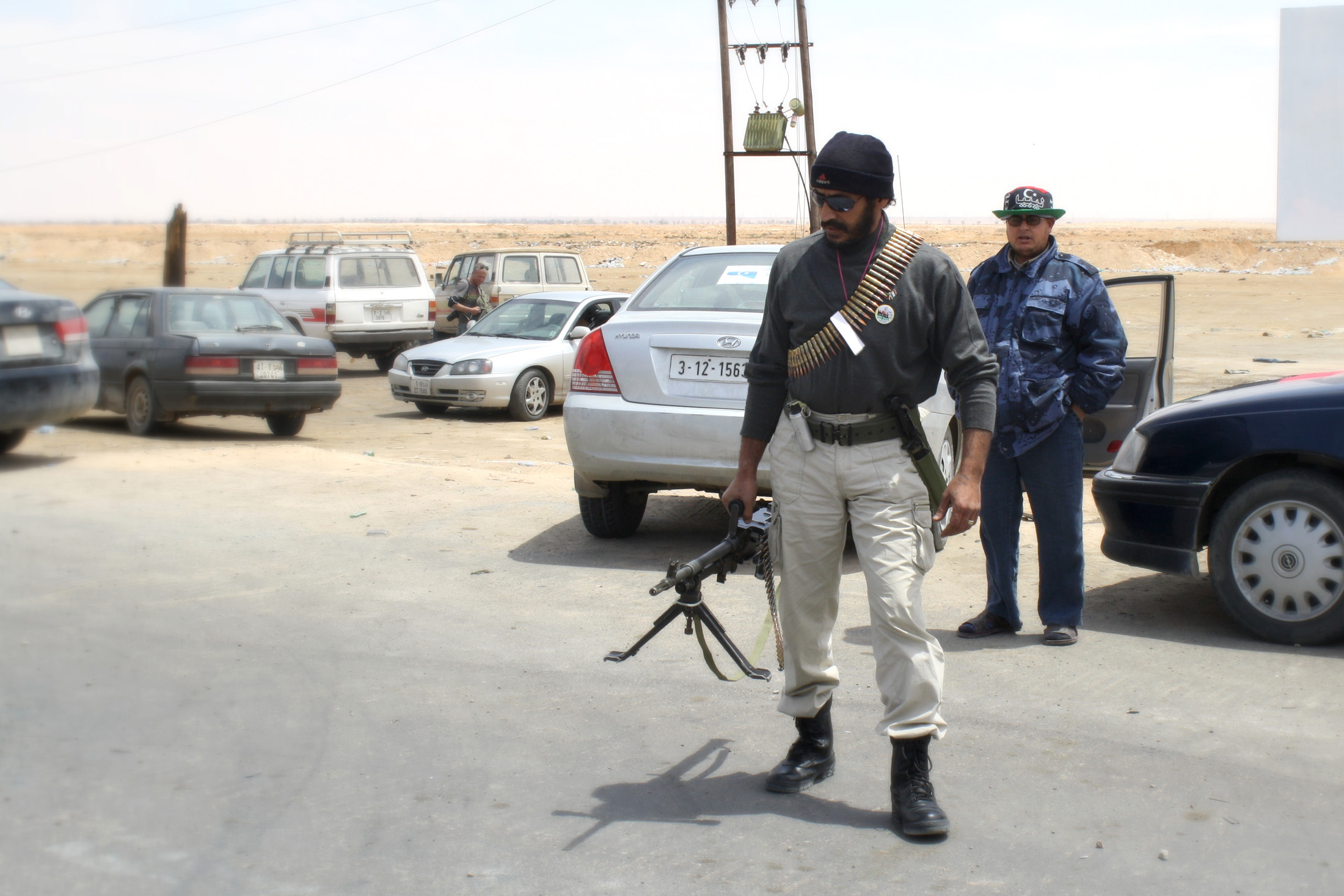(Timeline of Libyan events 4 April - 14 June)
Appealing for billions of dollars in aid for several countries, the UN said on 20 July that Libya would require significant humanitarian interventions this year.
14 June: Libyan rebels edge slowly beyond their western stronghold of Misrata towards Tripoli, but face supply shortages after Gaddafi’s forces hit a key refinery in the city.
15 June: The International Organization for Migration says 1,044,864 refugees have reached Egypt, Tunisia, Niger, Algeria and Chad.
16 June: NATO aircraft accidentally hit a column of Libyan rebel forces in the Brega area.
17 June: Italy signs an accord with Libya's interim rebel government to jointly tackle the migration crisis.
19 June: Libyan officials say a NATO strike hit a civilian house in Tripoli, killing nine residents.
22 June: France, UK reject an Italian call for a halt to military action to allow aid access. China describes rebels as a "dialogue partner". Libyan TV says "dozens" killed in Zlitan after NATO ships shell the town.
25 June: the International Criminal Court issues an arrest warrant for Gaddafi, accusing him of crimes against humanity.
27 June: NATO planes target government-held areas on the edge of the Nafusa mountains, ending a relative lull in combat in western Libya.
28 June: US Senate Foreign Relations Committee passes resolution supporting the limited use of US military force in Libya for one year.
30 June: A CNEWA report details the high cost Libyan children are paying as a result of the conflict.
2 July: Rebel leaders welcome an African Union offer to open talks with the government in Tripoli without the involvement of Gaddafi.
8 July: Human Rights Watch accuses government forces of laying at least three minefields outside the village of al-Qawalish in the Nafusa mountains.
10 July: Fierce fighting in the western mountains turns half a dozen villages into ghost towns, causing further displacements.
11 July: Italy signals desire for a political solution to the war in Libya that would see Gaddafi "leaving the stage".
13 July: UK’s Daily Mail says rebels using children to help the war effort.
14 July: At least 442 people cross into Tunisia, bringing the total to 624,466.
15 July: USA formally recognizes Libya's main opposition group as the country's legitimate government.
16 July: Libyan rebel forces enter Brega.
17 July: Government forces shell opposition positions near Brega, killing eight and wounding dozens more.
20 July: French foreign minister suggests Gaddafi could stay in country if he relinquishes power.
21 July: NATO chief Anders Fogh Rasmussen gives an upbeat assessment of the progress of opposition forces.
(Sources: Reuters, USAID, The International News, Al Jazeera, The Observer, Associated Press, CNN, CNEWA United States, BBC, Human Rights Watch, NPR, International Business Times, International Organization for Migration)
ae/cb
This article was produced by IRIN News while it was part of the United Nations Office for the Coordination of Humanitarian Affairs. Please send queries on copyright or liability to the UN. For more information: https://shop.un.org/rights-permissions





